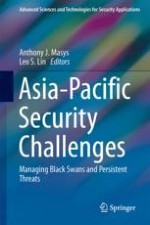2018 | OriginalPaper | Buchkapitel
Universal Participation Without Taiwan? A Study of Taiwan’s Participation in the Global Health Governance Sponsored by the World Health Organization
verfasst von : Ping-Kuei Chen
Erschienen in: Asia-Pacific Security Challenges
Aktivieren Sie unsere intelligente Suche, um passende Fachinhalte oder Patente zu finden.
Wählen Sie Textabschnitte aus um mit Künstlicher Intelligenz passenden Patente zu finden. powered by
Markieren Sie Textabschnitte, um KI-gestützt weitere passende Inhalte zu finden. powered by
